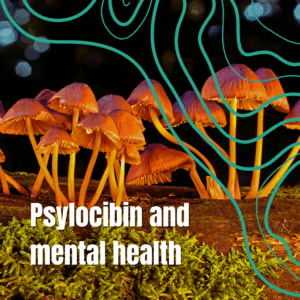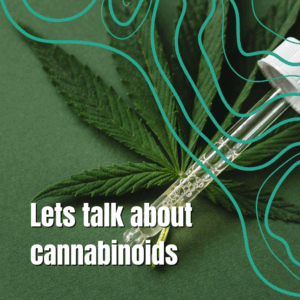

Cannabis is becoming increasingly popular in the beauty industry for its potential to support skin health. Cannabis-infused products, especially those containing cannabidiol (CBD), are valued for their anti-inflammatory and antioxidant properties. These qualities may help reduce redness, soothe irritation, and protect the skin from environmental damage.
Many brands are incorporating cannabis extracts into skincare formulations like creams, serums, and masks. This trend reflects a growing interest in natural ingredients that promote wellness without harsh chemicals. Understanding how cannabis works in beauty products helps consumers make informed choices about their skincare routines.
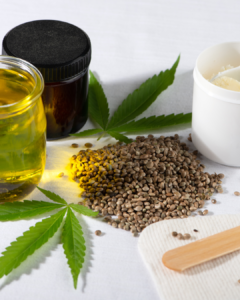
Understanding Cannabis in Beauty Products
Cannabis components interact differently with the skin depending on their chemical properties and extraction methods. Several cannabinoids offer unique benefits, and various extraction techniques impact purity and potency. The formats for topical use determine how cannabis ingredients are absorbed and affect the skin.
Key Cannabinoids: CBD, THC, and CBG
CBD (cannabidiol) is non-psychoactive and widely used for its anti-inflammatory and antioxidant properties. It helps calm redness and irritation, making it common in creams and serums targeting sensitive or acne-prone skin.
THC (tetrahydrocannabinol) is psychoactive but found in very low concentrations in most beauty products. It may offer relaxation and pain relief but is less common due to legal restrictions and potential psychoactive effects.
CBG (cannabigerol) is a lesser-known cannabinoid valued for its antibacterial and anti-inflammatory traits. It is gaining interest for treating skin issues like eczema and psoriasis by supporting skin repair without intense effects.
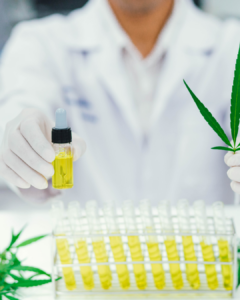
Methods of Cannabis Extraction
Extraction affects the purity, safety, and concentration of cannabinoids in beauty products.
Common methods include:
-
- CO2 Extraction: Uses pressurized carbon dioxide to pull cannabinoids cleanly. It preserves potency and produces a pure, solvent-free extract.
-
- Ethanol Extraction: Involves soaking the plant in alcohol, which dissolves cannabinoids and terpenes. This method is faster but may retain chlorophyll unless refined.
-
- Oil Infusion: Cannabis is soaked in carrier oils to extract cannabinoids gently. This is a traditional method, suitable for less processed products.
Each method impacts the final product’s texture and cannabinoid profile.
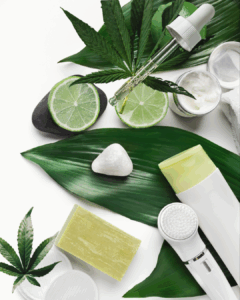
Common Forms of Topical Application
Cannabis is incorporated mainly in four forms:
-
- Creams and Lotions: These offer hydration while delivering cannabinoids directly to the skin. They are easy to apply broadly.
-
- Balms and Salves: Thicker and often wax-based, these provide targeted relief and create a protective barrier that locks in moisture.
-
- Serums: Concentrated and lightweight, serums allow deeper penetration of cannabinoids into the skin layers.
-
- Oils: Blend cannabinoids with carrier oils like jojoba or hemp seed oil, facilitating quick absorption and combining benefits of both ingredients.
Each form suits different skincare needs and preferences.
Skin Health Benefits of Cannabis
Cannabis contains compounds that interact with the skin’s endocannabinoid system, influencing inflammation, oil production, and hydration levels. These interactions contribute to several measurable effects on skin health.
Anti-Inflammatory Properties
Cannabis is rich in cannabinoids like cannabidiol (CBD), which have demonstrated anti-inflammatory effects. CBD can reduce pro-inflammatory cytokines, helping to calm skin conditions involving redness and irritation.
This action makes it valuable for skin disorders such as eczema and psoriasis, where inflammation plays a key role. Topical cannabis products may decrease swelling and soothe irritated areas effectively without the harsh effects of steroids.
Additionally, cannabinoids may support the skin’s natural barrier by reducing oxidative stress caused by environmental damage. This further aids in maintaining healthy, less-reactive skin.
Potential for Acne Management
Cannabis compounds, particularly CBD, help regulate sebum production by interacting with sebaceous glands. Excess sebum is a primary factor in acne development, so moderation can reduce clogged pores.
CBD also exhibits antibacterial activity against acne-causing bacteria such as Cutibacterium acnes. This dual effect can limit bacterial growth while controlling oiliness, reducing acne outbreaks.
Unlike some acne treatments, cannabis-based products do not typically cause dryness or irritation. This may make them a milder alternative for acne-prone skin, though users should patch test for any sensitivities.
Hydration and Moisturization Effects
Cannabis extracts contain fatty acids and terpenes that contribute to skin hydration and moisture retention. These compounds help reinforce the skin’s lipid barrier.
Maintaining this barrier is essential for preventing water loss and dryness. In topical applications, cannabis can improve skin smoothness and softness by locking in moisture.
Some formulations combine cannabis with humectants and emollients for enhanced hydrating benefits. These can be especially beneficial for dry or mature skin types needing extra support.
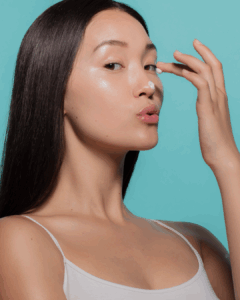
Incorporating Cannabis in Hair Care
Cannabis-derived ingredients like hemp seed oil and CBD are used for their moisturizing and anti-inflammatory properties. These components help improve scalp health and hair condition by addressing dryness and irritation.
Scalp Nourishment
Hemp seed oil is rich in omega-3 and omega-6 fatty acids, which help moisturize the scalp without clogging pores. These fatty acids strengthen the scalp’s natural barrier, reducing dryness and flakiness.
CBD, known for its anti-inflammatory effects, may calm irritated or itchy scalps. It also contains antioxidants that support overall scalp health by protecting skin cells from oxidative stress.
Using cannabis-infused hair products regularly can enhance scalp hydration. This helps maintain a balanced environment that supports healthy hair follicles and reduces common scalp issues such as dandruff.
Supporting Hair Growth
Cannabinoids may interact with the body’s endocannabinoid system, which influences hair follicle function. By regulating factors like inflammation and sebum production, cannabis ingredients contribute to a healthier hair growth cycle.
Hemp seed oil contains essential nutrients, including vitamin E, that support hair strength and elasticity. These nutrients improve hair quality and reduce breakage.
Topical cannabis products can improve blood circulation to the scalp. This increased blood flow delivers more oxygen and nutrients, which may encourage hair follicles to stay active and promote growth.
Brand Innovations and Product Development
Brands are expanding beyond traditional skincare with creative applications of cannabis extracts. New launches include facial masks, makeup primers, and hair care lines formulated to leverage anti-inflammatory and antioxidant effects.
Innovation often focuses on extraction purity and ingredient transparency. Companies emphasize third-party lab testing and sourcing from sustainable hemp farms to build trust.
Table of recent product trends:
| Product Type | Focus Area | Consumer Appeal |
|---|---|---|
| CBD Facial Serums | Anti-redness, hydration | Sensitive skin, calming |
| Hemp Oil Haircare | Scalp nourishment | Dry, damaged hair |
| Cannabis Makeup | Primer, foundation | Lightweight, soothing feel |
These innovations reflect growing consumer demand for targeted solutions that blend beauty with holistic wellness. Have you tried some of these products? Share this with someone you know will value it and remember to visit us at Pasadena Herbal Collective.

